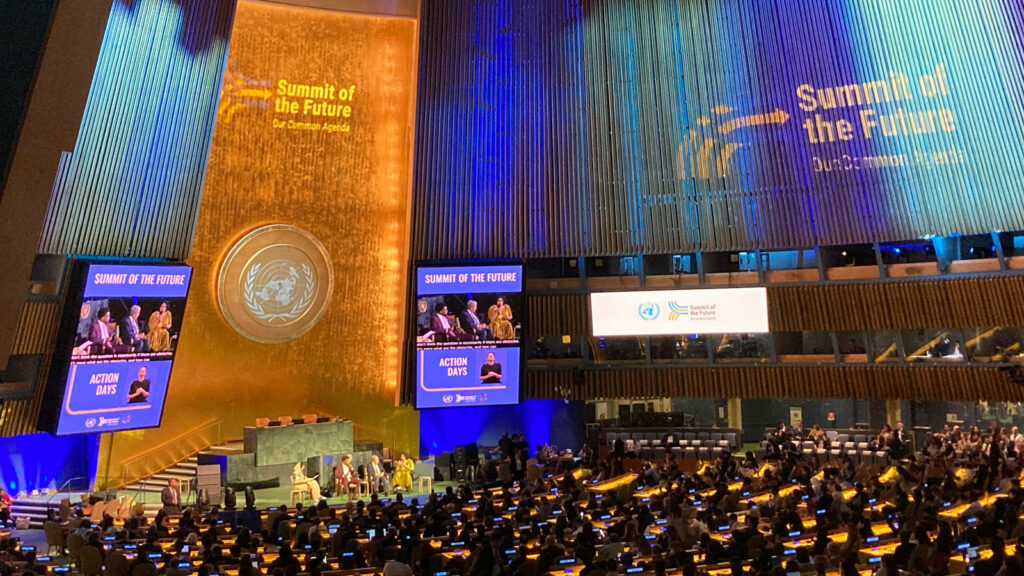
Photo: Lucas Pretti/OKFN
As Chief Executive Officer of the Open Knowledge Foundation, I have been selected to join and work in the United Nations Commission on Science and Technology for Development (CSTD) Working Group on Data Governance at All Levels and the Working Group on Universal Safeguards for Digital Public Infrastructure (DPI).
We have led the open movement towards a rights-enhancing and inclusive digital society for over two decades. Our legal tools in the Open Data Commons have enabled unrestricted data sharing, empowering global communities to innovate and collaborate. The Open Definition sets a standard for openness, guiding countless individuals and institutions to share their data, knowledge and tools. The School of Data, one of our flagship projects, has provided thousands worldwide with skills to turn data into actionable insights. As members of the Digital Public Goods Alliance, we have actively advocated for open, interoperable, sustainable, and lasting technology that serves all. Through CKAN—a digital public good that was created by our technical teams —we have provided hundreds of governments and organisations with a platform for open data sharing, fostering economic opportunities, accountability and innovation all over the world. We are not only thinkers but doers, and it is such accumulated experience that I am bringing to the groups.
In changing times, when multilateral cooperation mechanisms are questioned, when the word openness is being abused to mask extractive businesses, and when technology and data are used to commit injustices at large scale, it is urgent to be present in the spaces where key actors convey to explore solutions to break such dynamics and build together feasible paths towards a different digital society, breaking down data monopolies and delivering unprecedented access to knowledge, for all —unlocking pathways for innovation and growth. That is why principles of open knowledge, open data, open collaboration and open standards should guide the data governance in every area, and our examples and experiences can lead to better, more effective data governance systems.
In the Working Groups, I will suggest the “open by design” principle, for datasets and systems to become the backbone of our future. Highly digitised societies—such as digital identities and payment platforms—, if designed with opacity, without meaningful participation and accountability, these risk entrenching exclusion, corruption and control; if they are discussed openly with the people they intend to serve and if they are developed open and kept open, they can enable accountability, interoperability and the ability to build upon, while also reducing the risks for the most vulnerable in society. Through my role in the Digital Public Goods Alliance and stewardship of CKAN, I have gained experience and a better understanding of the urgency of building Digital Public Infrastructure rooted in open standards, open-source software (ideally free software) and open data. Open technologies, standards, and practices remove barriers, ensuring that infrastructure enables participation and economic advancement rather than perpetuating disparities.
As the work progresses in these groups, I will share as many insights into its progress as I am permitted and seek advice and guidance from our valuable community and international network, which is closely in touch with the latest challenges and progress achieved in these areas.








